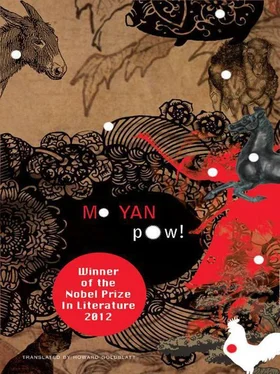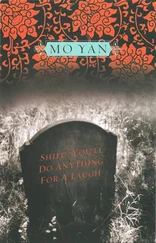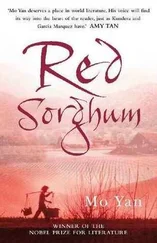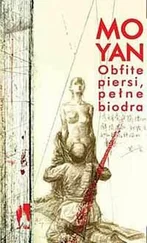Once the structure was complete, the workers backed off to smoke or woolgather while I gave Father and Lao Lan a guided tour. After pointing out the features and their uses, I turned to the smoking workers. ‘If you light up in this building tomorrow, I'll fine you two-weeks’ pay.’
Their eyes blazed with fury at my threat but they did stub out their cigarettes.
Early the next morning, six men filled the two overhead reservoirs. I could have had them hook up a hose to an electric pump but that would have been expensive and, as I saw it, unexciting and dull. I preferred the view of six men labouring to and from the well, time after time.
When the reservoirs were full, the six men walked over to the entrance and laid down their shoulder poles for a rest. ‘Once the process begins,’ I said, ‘it's your job to see that there's always water in the reservoirs. There can be no interruptions.’ ‘No sweat, Director,’ they said as they thumped their chests, apparently in high spirits. I knew why. I'd known from the very beginning that only four men were needed to keep the reservoirs full, but I'd added two more just to spice things up.
Before the formal work day began, my father and mother, along with Lao Lan, showed up for the guided tour. As I spiritedly explained the technical aspects, I really looked the part of a water-station manager, at least I thought so. Over the past few days Jiaojiao had followed me everywhere, carrying my army canteen—another item Mother and I had found scavenging—filled with sugar water. Every time I'd hand out an order, she'd raise her thumb and say, ‘My brother's great!’ Then she'd unscrew the cap and hand me the canteen: ‘Here, drink.’
After the guided tour, it was time to start work. I stood on a chair by the entrance so I could see everything in the building.
‘Is everyone ready?’ I shouted.
They stared blankly for a moment, but then quickly responded in unison, the way we'd practiced: ‘Ready! We await the director's instructions!’
Their false show of enthusiasm turned what was ceremoniously serious into something akin to farce, and I saw the smirks on the faces of the less sincere workers. But I let it go. I'd worked things out carefully and I knew my plan was all right.
Time to give the order: ‘Bring the first beef cows in from the cattle pens.’
The men picked up their halters and ropes: ‘Got it!’
‘Go!’ I made a chopping motion, the way I'd seen film toughs give commands.
The men's faces froze. I knew that if Lao Lan and my parents hadn't been there then they'd have burst out laughing. Instead, they ran to the door, bumping into one another on their way out. Since we'd rehearsed the drill, they knew what to do and so ran straight to the cow pen in the plant's southeast corner. A hundred head of recently purchased cattle had been herded into a circular pen. Local peasants had brought some to us, others had been driven over by cattle merchants, there were even some that the cattle thieves had delivered in the middle of the night. Mixed with the cattle were ten donkeys, five ageing mules and seven old nags, plus some camels with patchy hides, like old men with padded jackets draped over their shoulders in early summer. We happily accepted any and all livestock that could be turned into meat. We'd also built a sty nearby for, in addition to pigs, a quantity of sheep and goats, including milch goats. And dogs. Fed an enhanced diet, our dogs looked like young hippos, their movements slowed by bloated bodies. No longer agile and intelligent, they had lost all their canine traits and become dull, stupid animals who were useless as watchdogs—they'd wag their tails in welcome at thieves and snarl at their owners. All these animals, without exception, were scheduled to pass through our meat-cleansing station. But let's start with the cows, since they were our main concern. We were the official suppliers to farmers’ markets and restaurants in town. Urbanites tend to be faddish diners and their tastes change like the wind. At the time, the newspapers were reporting on the nutritional value of beef being higher than that of other meats. Hence, a beef craze. Hence, cows were what we slaughtered. Some time later the newspapers would report that the nutritive value of pork was higher. Hence, the pork craze. Hence, pigs were what we slaughtered. Lao Lan was the first peasant-turned-entrepreneur to realize the importance of the media. ‘When profits from plant operations are high enough,’ he said one day, ‘we'll start our own newspaper, Meat Digest , and advertise our own products every day.’ But, back to our workers. Each led in a pair of cows from the pen. Some obediently trotted behind the men who held their halters, some others were less well behaved and veered this way and that and slowed things down. A black bull broke loose, raised its tail and ran, hoofs flying, to the gate, which was now shut. ‘Stop it!’ someone yelled. ‘Stop that bull!’ Now who would be that foolish? Anyone who got in the way of those horns would be tossed into the air and land with a thud, a mangled mess. Though I was apprehensive, I was still in control. ‘Out of the way!’ I shouted. The raging bull ran headlong into the steel gate and we were deafened by the sound of the collision. Its neck twisted as it bounced into the air and then landed hard on the ground. ‘All right!’ I shouted. ‘Now tie it up.’ The man with the empty halter walked over tentatively and bent down, legs slightly bowed, ready to flee at a moment's notice. But the bull let itself be haltered, then obediently got to its feet and dutifully followed the man up to the workshop door. Its head was bleeding and it wore a sheepish look, like a schoolboy caught misbehaving. Though only a minor episode, it livened up the atmosphere—a good thing, nothing wrong with that. In a matter of minutes, men and beasts were in position at the door and the cows eager to get in, perhaps because they smelt the fresh water in the reservoirs. The six water-carriers standing by the door lazily observing the goings-on were nudged aside; their buckets clattered loudly against each other. ‘What's the hurry?’ I shouted. ‘This isn't a race to mourn your dead fathers! Bring them in slowly, one at a time.’ I had to remind the men to treat these beasts with a little kindness during their last minutes on earth. They needed to be cajoled, tricked even, so they'd remain calm and contented. An animal's mood has a direct effect on the quality of its meat. One that's terrified just before it's slaughtered produces sour meat; only an animal that dies peacefully produces fragrant meat. I told them to treat the beef cattle with special care, since they were in the minority; most of the animals had contributed to humanity by working in the fields. We may have been different from Huang Biao, who treated an old cow as the reincarnation of his mother, but we still needed to show them a degree of respect. In today's words: we wanted to let them die with dignity.
The workers lined up their charges in two rows at the door, an impressive column of forty head of cattle. I've never been someone to shout his successes from the rooftops but watching my vision being transformed into a reality was a proud moment indeed. The first man up was Yao Qi, which only made me prouder, as I recalled how he'd brought my father that bottle of fake Maotai, which Mother had then given to Lao Lan. He'd also said filthy things about Aunty Wild Mule, including that he'd like to take her to bed. A perfect example of ‘Ugly toad wanting to eat swan meat’. I had no reason to treat a bum like him with kid gloves. I was hostile to anyone who slandered Aunty Wild Mule. Joining as an ordinary worker at the meatpacking plant—was it a sign of a wise Yao Qi toeing the line? Or was it more a case of enduring hardships in order to seek revenge? This could be a problem, I thought to myself. But not Lao Lan, who stood in front of me. He nodded to Yao Qi and smiled. Yao Qi smiled back. The nods and smiles hinted at a unique relationship between the two men. Lao Lan was a broad-minded man, and someone like that cannot be taken lightly. Yao Qi was a man who could demean himself in front of others. Someone like that cannot be taken lightly either.
Читать дальше












